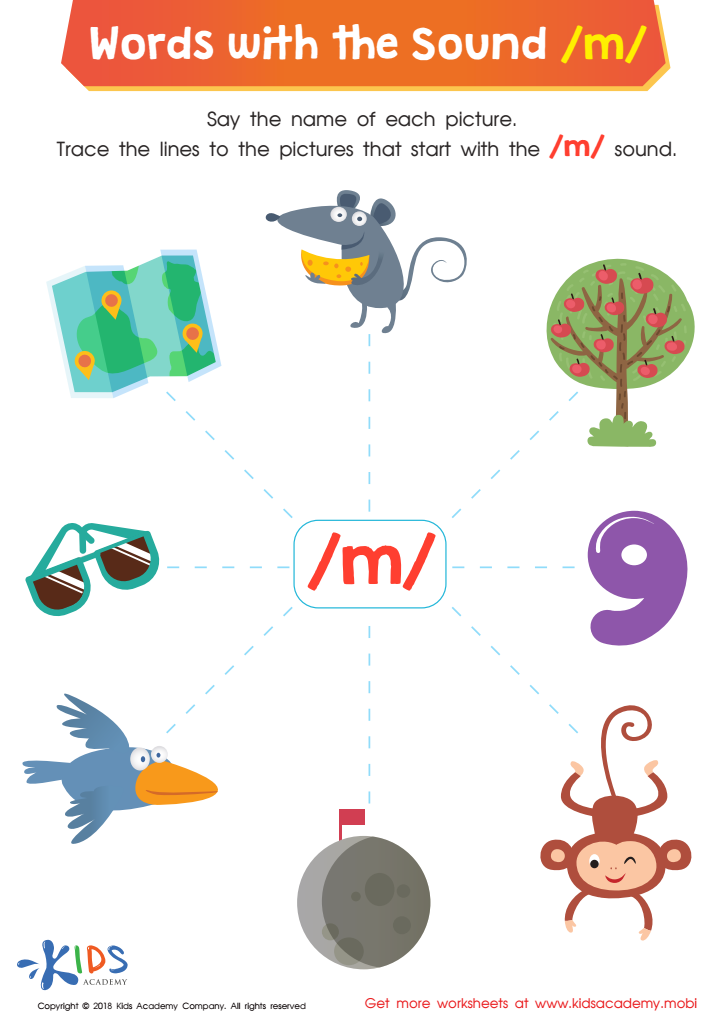Phonics practice Consonants Worksheets for Ages 4-5
4 filtered results
-
From - To
Discover our engaging Phonics Practice Consonants Worksheets designed for ages 4-5! Perfect for early learners, these worksheets help children master the sounds of consonants through fun and interactive activities. Each sheet features vibrant illustrations and simple instructions to keep young minds captivated while reinforcing important phonics skills. Ideal for preschool and kindergarten use, our resources encourage confident reading and pronunciation. Give your child a head start in literacy with Kids Academy's expertly crafted and educationally sound phonics worksheets. Explore our collection today for a great foundation in reading!


Twin Onset Worksheet


Words with sound p Reading Worksheet


Words with sound f Reading Worksheet


Words with Sound M Reading Worksheet
Phonics practice, particularly focusing on consonants for ages 4-5, is fundamental in early literacy development and has significant long-term educational benefits. At this formative age, understanding and recognizing consonant sounds helps children decode words more easily, which is crucial for reading proficiency. Phonics teaching enables children to understand the relationship between spoken and written language by teaching them how letters and groups of letters correspond to specific sounds.
For parents and teachers, emphasizing phonics practice ensures that children build a strong foundation in phonological awareness, which is the ability to identify and manipulate sounds in words. This awareness is a key predictor of future reading success. Without a solid grasp of phonics, children may struggle with reading fluency and comprehension later on.
Additionally, practicing consonants enhances children's spelling skills. As they learn to blend consonants and vowels, they become more adept at forming words, improving both their writing and reading abilities. This early intervention can prevent potential learning difficulties and foster a love for reading.
Therefore, parents and teachers should prioritize phonics practice to support children in developing the essential skills needed for literacy, setting them up for academic success and nurturing a lifelong enjoyment of reading.

 Assign to My Students
Assign to My Students














